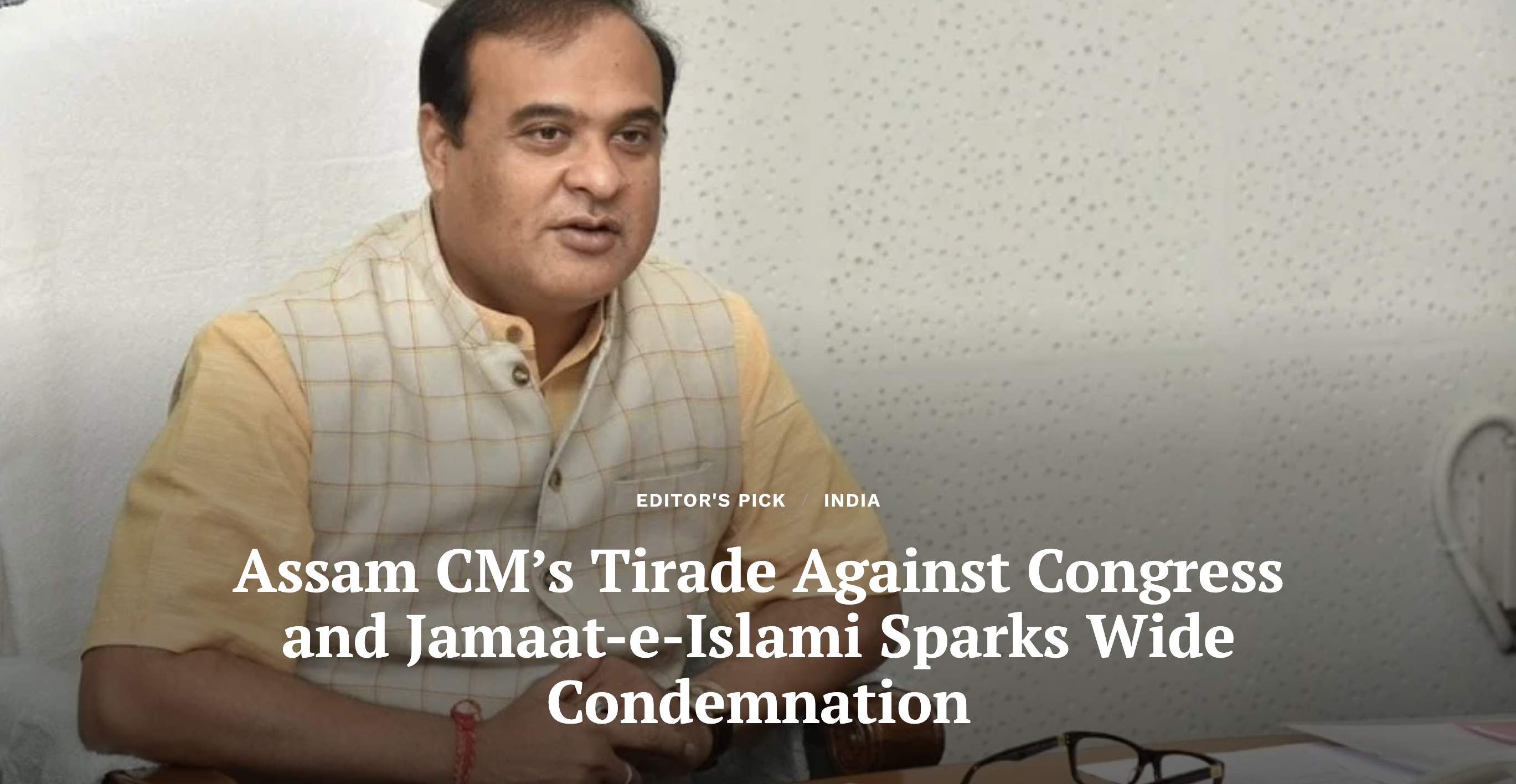
NEW DELHI/GUWAHATI – Assam Chief Minister Himanta Biswa Sarma has attracted nationwide condemnation as he levelled strong allegations against the Congress, Jamaat-e-Islami Hind, and other social organisations. Speaking to the media on Sunday, he claimed that these groups are seeking to destabilise Assam in coordination with Pakistan and Bangladesh.
“People associated with Congress and Jamaat-e-Islami are visiting Assam, and their agenda is clear: to disturb peace and stability in the state with foreign collaboration,” said Sarma. “We are closely monitoring their movements. We will not let their attempts succeed, as we saw during the NRC (National Register of Citizens) process,” he said.
The chief minister mentioned several individuals by name, including Prashant Bhushan, Harsh Mander, Wajahat Habibullah, Fayyaz Shaheen, and Jauhar Sarkar, alleging that they are meeting with minority community leaders and members of Jamaat-e-Islami across Assam.
He further stirred controversy by warning that if Jamiat Ulema-e-Hind chief Maulana Mahmood Madani were to visit Assam, he would “send him to Bangladesh.” These remarks have drawn sharp criticism from Muslim organisations and scholars nationwide.
The context of these statements is important. In recent weeks, the Assam government has demolished homes and religious structures belonging to Bengali-speaking Muslims, claiming to target illegal residents from Bangladesh. These measures have created widespread anxiety and resentment among the Muslim population.
Community leaders report that such actions disproportionately affect lawful residents as well, creating fear and uncertainty. “People’s homes are being demolished on the basis of questionable documents, and it is frightening for families who have lived here for generations,” said one local resident, requesting anonymity.
The NRC has previously triggered similar tensions, and critics warn that the current measures may revive communal anxieties. Observers have noted that statements by political leaders targeting Muslims contribute to social unrest rather than resolving legal or administrative issues.
Founded on 26 August 1948, Jamaat-e-Islami Hind emerged after the original Jamaat-e-Islami, established by Maulana Syed Abul Ala Maududi, split following the Partition of India. In the Indian context, Jamaat-e-Islami Hind positions itself as a purely da’wah, educational, and social movement. Its stated objective is the reformation of individual and collective life according to Quranic and Sunnah principles, aiming to build a society grounded in justice, goodness, and peace.
Unlike many political organisations, Jamaat-e-Islami Hind has consistently stayed away from electoral politics. Instead, the movement focuses on religious and moral education, modern schooling, social welfare, and disaster relief. It also works to promote national unity and interfaith dialogue, aiming for harmonious coexistence across India’s multi-religious population.
This story was originally published in clarionindia.net. Read the full story here.

